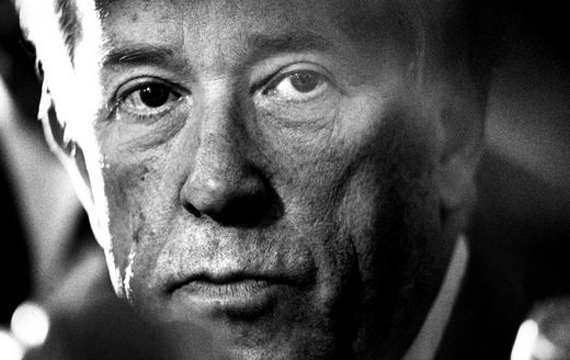The Henry Jackson Society was founded in Cambridge, on March 11 2005, and was launched in the Houses of Parliament, on November 22 2005.
http://henryjacksonsociety.org/
US Senator for Washington State, 1953-1983
Henry M. Jackson (1912-1983) came from a working class Scandinavian background and was elected to the House of Representatives for his native Washington State in 1940. He was an ardent New Dealer, trade unionist, environmentalist and supporter of the early civil rights movement. He was centrally involved in such measures as the ‘Land and Conservation Act’ (1964), ‘The Wilderness Act’ (1964), the ‘National Seashore Bills’ and much else. He was the scourge of corporate interests, particularly power and oil companies, who objected to his enthusiasm for nationalisation and price controls.Jackson started out during the Second World War as something of an isolationist and voted against initial plans to help Great Britain through the Lend-Lease programme. Very soon, however, the course of events caused him to change his mind, and Jackson remained a protagonist of US international engagement and the application of US power until the end of his life. During the war he was an enthusiastic supporter – along with many other liberals, such as the later Chief Justice Warren – of the internment of the Japanese; this was perhaps his greatest misjudgement. In the 1950s, by contrast he was a critic of the red-baiter Senator McCarthy and his methods, which he felt gave the noble cause of anti-communism a bad name.
At first, Jackson was very much within the mainstream of the Cold War liberal Democratic Party. He was later marginalised as the party moved to the left after 1968, especially on foreign policy. A strong supporter of Lyndon Johnson’s war to contain communism in Vietnam, Jackson became a highly effective critic of Détente with the Soviet Union, which he felt sold out human rights and compromised the security of the free world. Very occasionally, Jackson was prepared to put strategic concerns ahead of human rights – for example in his support for an opening to Peking to balance Moscow – but he was a supporter of sanctions on the apartheid regime in South Africa, even when some thought this inopportune.
He was an unsuccessful candidate for the Democratic nomination in 1976. Though Jackson remained a loyal Democrat to the end, many of his supporters and staffers switched to the Republicans under Reagan.

No comments:
Post a Comment